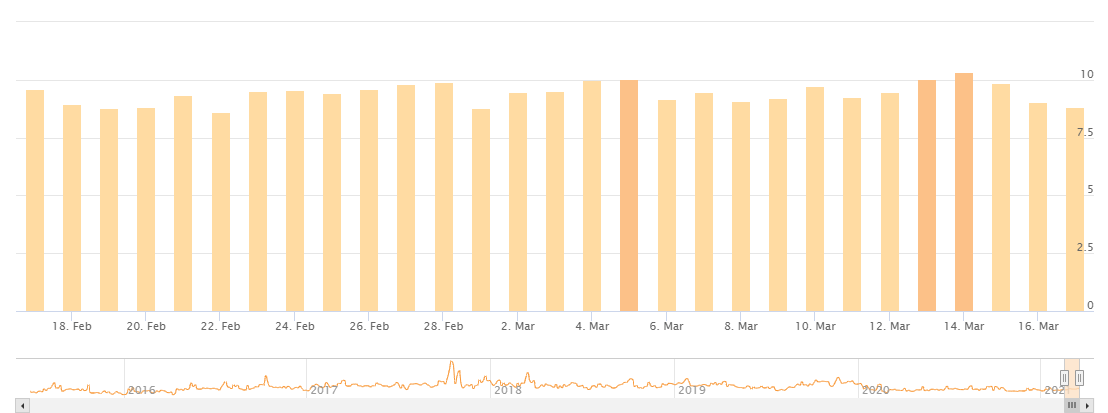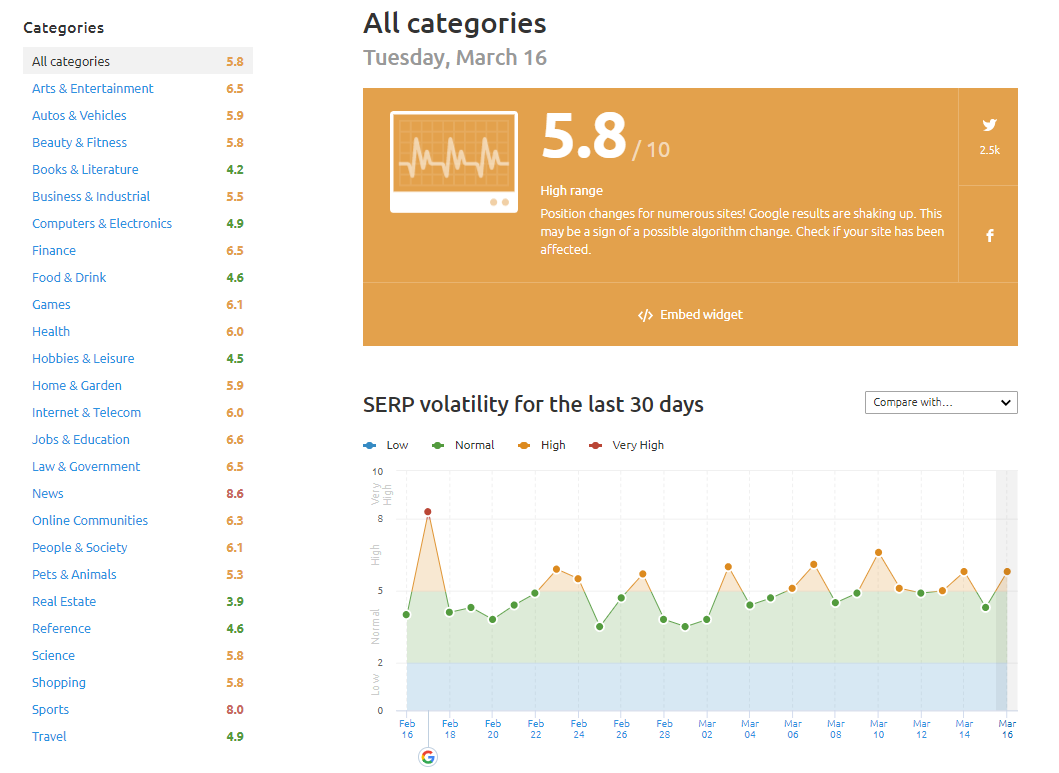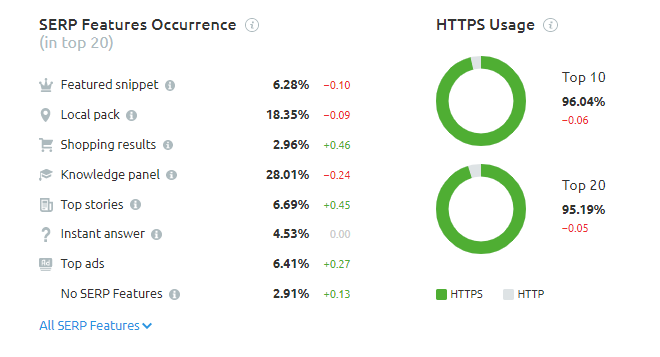Unconfirmed Google Algorithm Updates: Should you be Worried About Them?

When Google started pre-announcing broad core algorithm updates back in 2019, the SEO community rejoiced. However, Google makes changes every day in their algorithm and thousands every year. Broad core algorithm updates happen multiple times a year, but there are algorithm updates that happen more frequently.
Their effects are unfelt at times but often they make enough noise to be noticed by the SEO community but not big enough to be announced by Google. These are called unconfirmed Google Algorithm updates.
In algorithm updates, there are some who win and some who lose. That is also why SEOs are always on high alert for disturbances in the search results and it is easy to panic when you see news or talks about unconfirmed algorithm updates. But should you really worry about them?
What are Uncorfimed Google Algorithm Updates?
Unconfirmed Google Algorithms are unusual volatility and fluctuations in the search results. They are called unconfirmed because Google has no announcements about them and they are usually detected and reported by the SEO community.
When Do They Happen?
There is no actual way to predict when an unconfirmed Google algorithm update is going to happen. As I’ve mentioned earlier, Google makes changes every single day. Oftentimes, these changes won’t have effects that would merit any noise but there are times people notice the effects like fluctuations in rankings and traffic. Unconfirmed Google algorithm updates can also happen multiple times a week or month.
Should you be Worried?
The scale of unconfirmed Google Algorithm updates is far less than broad core algorithm updates and there is quite a low chance of getting affected by it. Usually, only a small portion of websites will notice these fluctuations or a certain niche. So no, you shouldn’t be all that worried when you see talks about unconfirmed algorithm updates.
In my experience, the websites that we handle rarely get affected by these updates. If we do get affected, we usually just notice movements in the rankings but not enough to cause panic and they go back to normal after a day or two.
From January 2021 to the time of this writing (March 18, 2021), there have been 9 unconfirmed algorithm updates that were reported by the community. There were no noticeable traces of effects in the websites that our team handles.
Here are some samples from our websites:
SEO-Hacker.com

The traffic of Health Website

The traffic of a Food Catering Website

The red arrows are pointing to days where algorithm updates were reported and as you can see, they were pretty normal. And has been the case for my clients for a decade now. So usually when I see reports of unconfirmed algorithm updates happening, I still inform our clients that the SERPs may be volatile but our team proceeds with work just like any other regular day.
What to do if you were Affected?
In algorithm updates, you either win or lose. If you win then that’s great! Just keep doing what you’re doing and try to do better. But if you lose, it can be quite frustrating to try and find out what to do next. Losing simply means drops in traffic or rankings. The gravity is far less than a broad core algorithm updates. But if it was too much to go unnoticed, what should you do?
See that’s the thing about algorithm updates. Google doesn’t really give us any information about what they changed so if you were negatively affected, you can’t really say that these specific factors on your website were the reason why your rankings dropped.
How you handle unconfirmed algorithm updates should just be the same as how you would handle the effects of broad core algorithm updates. Both are all about improving the overall quality of your website and Google has been giving advice on this for a long time now.
If you want to read more detailed advice on how to recover from algorithm updates, I highly recommend that you read these two blog post that I wrote about them:
How to Recover from Google’s Broad Core Algorithm Updates
Official Google Advice on Core Update Recovery
How do you Keep Track of Them?
If you want to be in the loop if there are unconfirmed Google algorithm updates happening or just any volatility in the search results, I highly suggest following trusted search engine news and analysis websites as well as tools that track volatility in search results.
First is Barry Schwartz of Search Engine Roundtable who reports both official and unconfirmed algorithm updates. He’s one of the most trusted personalities in the SEO industry. He’s always one of the first to pick up talks about algorithm updates.
Another must-follow is Marie Haynes. She’s an expert on links, penalties, and Google Algorithm updates and she has a weekly newsletter and podcast where she talks about her analysis of these updates whether they are unconfirmed or confirmed, and other SEO news.
For tools that can help detect algorithm changes, there are two tools that I always use and trust: Accuranker’s Grump and the SEMrush Sensor. Both of these tools detect volatility in the search results by tracking the movements of thousands of keywords.
In Accuranker’s Grump, they describe how the search results fluctuate by “moods”. The grumpier, the more fluctuations are happening. It’s user-friendly and it shows you what you need in one glance. It also has historical data if you want to look back at how big fluctuations were during past algorithm updates. Here’s how it looks:


If you’re looking for more granular data, then the SEMrush Sensor is for you. You can check fluctuations per niche, per device, or per country. It also shows data on how often SERP features appear. Although it is limited to the past 30 days, all the data it shows is very helpful, especially for analysis. Here’s how it looks:


Key Takeaway
Whether it’s an official or an unconfirmed algorithm update, the bottom line is, Google updates its algorithm at all times. Instead of thinking about how you are going to be affected by these updates and how you are going to react to them, it is better to be just prepared for them at all times. This means focus on doing SEO the right way; avoid shady tactics, produce great content, and make sure your website is technically sound.
Google makes these algorithm changes to continuously improve the search results they deliver to users. With that in mind, you should always push to improve your website and keep up with the changes in search.